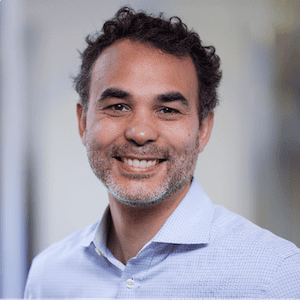-
Social Innovation Needs Data, This Free Platform Provides It
New social innovations are exciting, but there’s also great value in scaling existing solutions that show promise. There’s just one problem with this approach, says Sweta Govani: The information about these innovations is incomplete, complicated and fragmented, making it hard to determine which ones deserve support. She discusses a new solution called Global Innovation Exchange, a free, data-driven technology platform that gives funders, social entrepreneurs and others easy access to high-quality, up-to-date information about existing global development innovations.
- Categories
- Investing
-
Boycott Myanmar: An Open Letter to the Microfinance Community
In response to global events, microfinance has quickly ramped up its focus on refugees. But when those refugees are the Rohingya – the Muslim minority being expelled from Myanmar (and the world’s latest victims of genocide) – this new focus raises some difficult questions, says Daniel Rozas. Why isn’t anyone in the sector talking about the unspeakable atrocities being conducted and condoned in one of the fastest-growing microfinance markets in the world? “There is no way around it: When we work in Myanmar, we are complicit in ethnic cleansing,” Rozas says, in a bold call for a country-wide boycott.
- Categories
- Finance
-
Electrifying Transportation: Can This Innovative Financing Model Make Electric Buses a Global Reality?
Electrifying transportation at scale is critical to fighting climate change and urban pollution. And with their affordable battery costs and lower fuel and maintenance expenses, transit buses present an excellent business case for electrification. So what is preventing the rapid deployment of electric buses worldwide? Clean Energy Works founder Holmes Hummel discusses the main barrier to adoption – and an innovative financing solution that could turn things around.
- Categories
- Energy, Environment, Investing, Transportation
-
NB Quick Takes: Polman’s Out at Unilever – Let the Legacy Debate Begin!
In case you hadn't heard: Paul Polman is retiring as CEO of Unilever at the end of the year. Perhaps no other executive has been as closely associated with corporate social responsibility as Polman, who put social impact at the forefront of his agenda. That's not to say all of his initiatives were successful, nor were they without detractors – his retirement is sparking lots of discussion about his approach and its effectiveness at Unilever, not to mention its influence across the business world. We've gathered some early Twitter reactions in this post.
- Categories
- Social Enterprise, Uncategorized
-
Do Payday Loans Deserve Their Bad Reputation? Ask the People Who Know Best – the Borrowers
Payday loans have earned a bad reputation as high-interest money traps that leave low-income borrowers stuck in a cycle of debt. But despite all the criticism and bad press, these loans remain very popular among low-income borrowers, with an estimated 15,766 payday loan stores throughout the U.S. – slightly more than the country's 14,350 McDonalds. So are payday loans really that bad – and are borrowers actually being victimized? LendEDU conducted a survey of payday loan customers, and Mike Brown unpacks the results – many of which may surprise you.
- Categories
- Finance
- Tags
- financial health, lending
-
The Donor-Funded Dilemma: What’s Stopping Emerging Countries from Developing Private Markets for Contraceptives?
In sub-Saharan Africa, the private sector provides family planning solutions to almost 40 percent of women. But that isn’t the case in Malawi, a country that’s long been dominated by donor-funded commodities. Erika Beidelman and Andrea Bare at the William Davidson Institute explore Malawi's family planning landscape, highlighting five factors that may be limiting the private sector’s involvement – issues that may apply to other countries with histories of donor-funded healthcare.
- Categories
- Health Care
-
On the Ground at European Microfinance Week: Discussing Technology’s Threat and Promise – and Financial Services for Refugees
There were two topics that dominated debate at last week’s European Microfinance Week (EMW) conference: the threats and opportunities brought about by the fintech revolution in inclusive finance, and the issue of financial inclusion for refugees and internally displaced persons. The discussion of these issues ranged from hopeful to surprisingly cautionary – Sam Mendelson at the European Microfinance Platform shares some highlights.
- Categories
- Finance
-
Authentic Storytelling Can Boost a Social Enterprise’s Development – This Tool Can Help
When promoting their businesses, most social entrepreneurs naturally focus on talking about their successes. But though their instinct is often to minimize or ignore their enterprise's setbacks, this can actually be a mistake, says Barbara Börner, a consultant for social entrepreneurs and nonprofit organizations. She explores how telling the stories behind these challenges can raise awareness of a social business among potential investors, customers and other stakeholders – and she shares a free tool that can help entrepreneurs develop more effective storytelling skills.
- Categories
- Social Enterprise










